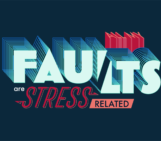
Every week, The Sassy Scientist answers a question on geodynamics, related topics, academic life, the universe or anything in between with a healthy dose of sarcasm. Do you have a question for The Sassy Scientist? Submit your question here or leave a comment below.
After having dutifully followed the instructions put forward on this very blog on how to write a proper peer-review, Tomás got their irritation bone tickled and asked:
My review was way more detailed than the comments from the other reviewer; am I annoying or helpful?
Dear Tomás,
Helpful. No question.
I feel your pain. Like you, I’ve spent many an hour painstakingly going over a manuscript, outlining both small typos or grammatical errors, and major flaws in the scientific procedures presented. It’s always nice to find out afterwards that the comments of the other reviewer(s) simply state, one way or another: “looks fine, more or less”. So, is it then your problem of having identified flaws whilst others deem these irrelevant? I doubt it. Common sense dictates there’s two main reasons why the other reviewer(s) provided a limited amount of comments: 1) they’re not really specialist on the specific topic of this manuscript whilst you are, or 2) they have not put that much time into it. Oftentimes I feel the latter is the most likely, since not-100%-specialists tend to put in more of an effort in reviewing an (from their perspective) off-topic manuscript. This does not mean that you cannot provide a good review without putting in at least a couple of days work; as a specialist your background (i.e., personal experience and knowledge of the literature) should be enough of a backbone to only need a careful read to identify fatal flaws, mixed messages, unclear units, masterful methodologies and incomprehensible interpretations. Emphasis on careful.
What is the peer-review proces really about? Is it about improving the scientific quality of manuscripts, making sure that we do not clutter our databases further with irrelevant, unreadable or plain-wrong papers? Or is it about simply checking a box, doing your – if you do it properly, still slightly – time-consuming duty and filling up your quota for your CV? I do hope it is not the latter. Otherwise, we’re pretty much doomed…
On a personal note, when reviews return in my inbox I always prefer the ‘way more detailed’ reviews: you’ve really put in an effort. This means I can get the most out of my work and the paper is going to improve, which means there’s a good chance of a great, future citation record. Sure, I need to put in some additional time to go through all of your details but it’s definitely worth it. Keep up the good work!
Yours truly,
The Sassy Scientist
PS: This post was written without any peer-review. Ah, the freedom to write what you want. Marvelous!




